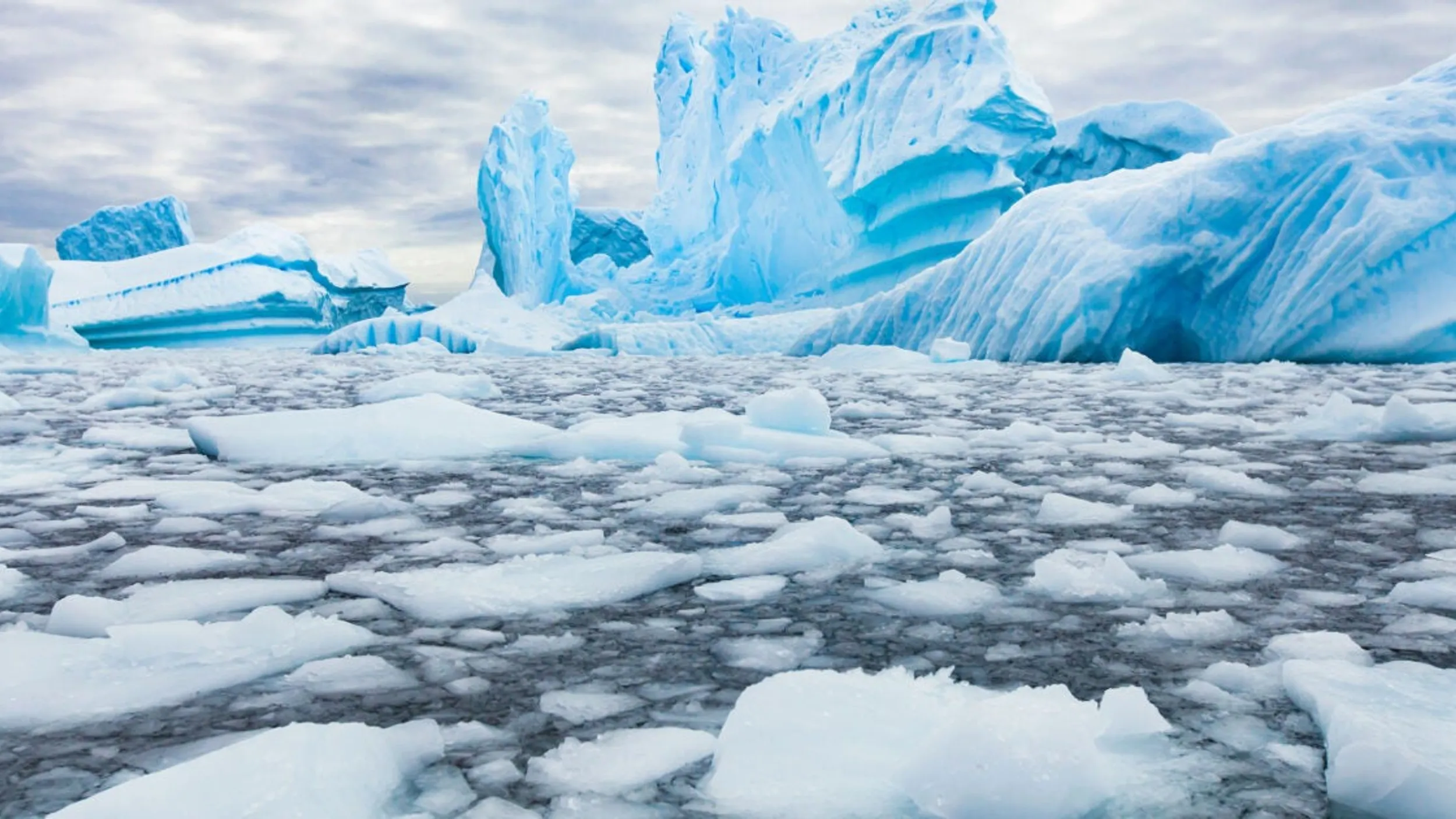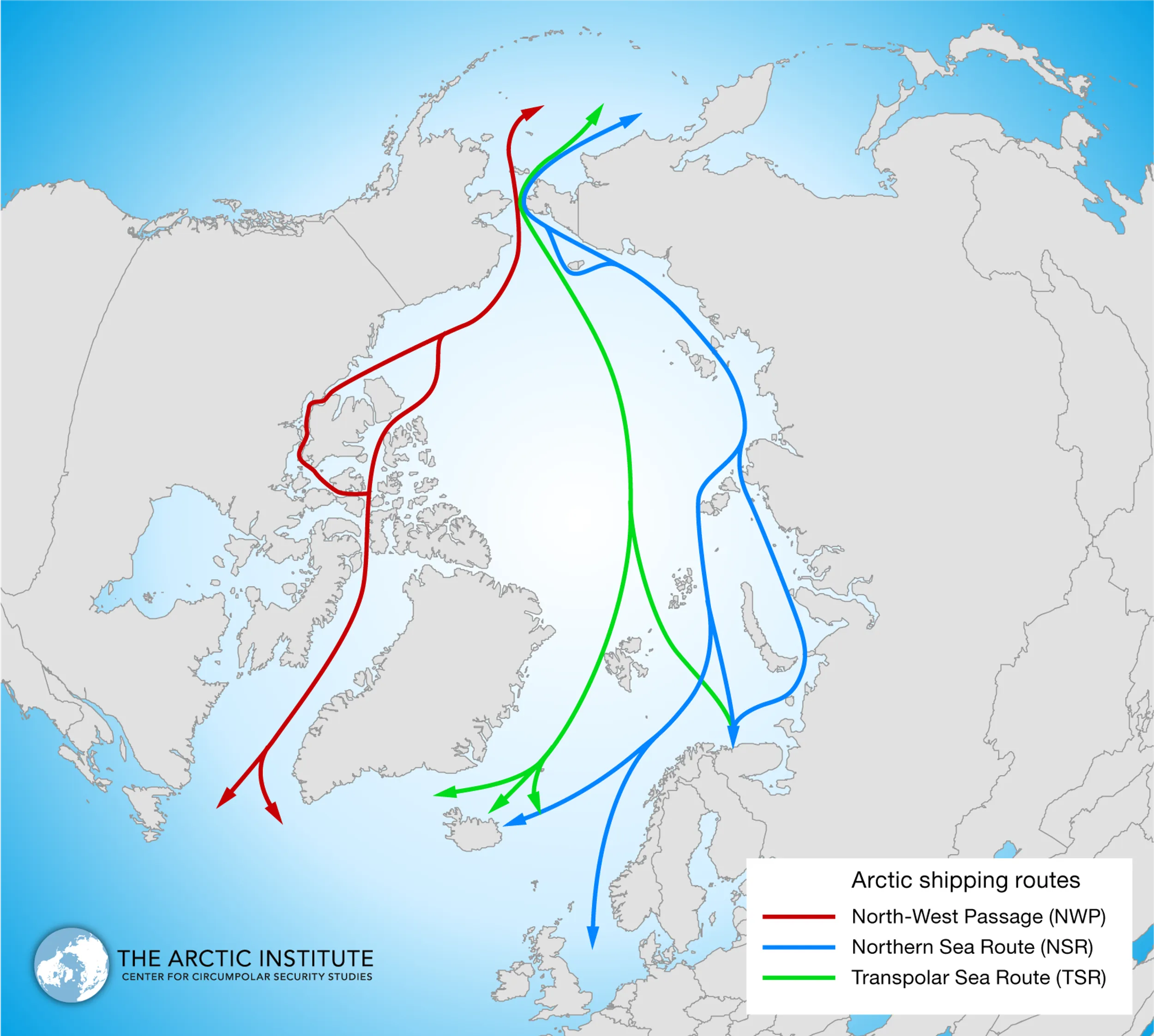The International Allure of the Arctic

The concept of the "global commons" asserts that certain areas do not belong to any individual country. The Arctic Ocean, alongside other oceans worldwide, is recognised as a global common and has thus been entrusted to the stewardship of a group of countries known as The Arctic Council.

The rapidly transforming Arctic is unveiling treasures of abundant resources and new shipping routes.
The Arctic region is being significantly impacted by global warming. The Arctic sea ice has been steadily shrinking, reaching its lowest recorded level in 2017. According to the Arctic Monitoring and Assessment Program, it is projected that the Arctic Ocean could be mostly free of ice in the summer as early as 2030. Additionally, the permafrost is beginning to thaw.
These changes have a couple of important implications:
- Opening of new shipping routes. The diminishing sea ice will pave the way for new shipping routes, considerably reducing transit times from East Asia to Europe.
- Abundance of resources. The Arctic Circle is believed to be rich in resources, potentially holding around 30% of the world's undiscovered gas and 13% of its undiscovered oil.
Major powers like Russia and the USA are seeking control over resources and transport routes. Russia has wasted no time in implementing an Arctic resource strategy and has made attempts, albeit unsuccessful, to lay claim to a significant portion of the Ocean basin.
Now, China has joined the mix. The reason behind China's interest is quite straightforward. The region could offer an alternative energy supply, reducing China's dependence on existing routes.

In 2013, China sought and successfully secured permanent observer status in the Arctic Council.
This granted Beijing a new platform to contribute to the governance of the region. China identifies itself as a "near-Arctic state" and views the region as holding "the inherited wealth of all humankind," which should be managed for the common good. While these words may be seen as mere rhetoric, it is important to understand China's true intentions.
In essence, China desires to be an active participant in the opportunities presented by the Arctic region. It positions itself as a major player, with the primary goal of incorporating the Arctic into its One Belt One Road project – a new Silk Road Trade plan. To achieve this, China is leveraging its financial strength to support significant developments, such as the establishment of a Liquefied Natural Gas facility on Russia's Yamal Peninsula.
When the USA and the EU imposed sanctions on Russia in 2014 following the annexation of Crimea, the project lost its primary funding partners. However, China stepped in and provided billions of euros in funding in exchange for a stake in the business. China emphasises the need for infrastructure development alongside the exploitation of oil and gas in the Arctic and is willing to offer financial assistance for such projects.
However, this support comes with certain conditions.
China's goal is not merely to be a part of these projects but to have a stake that grants it a role in their management. This approach draws parallels to China's successful economic expansion in the Indian Ocean Basin. Chinese businesses have made eye-catching bids for Arctic real estate, targeting properties such as a mothballed naval base in Greenland, a large coastal tract in northern Iceland, a rare piece of land on Svalbard, and a chunk of land in northern Norway. These investments are not only appealing to China but also to countries like Denmark, Iceland, Norway, and even Canada.
The future of the Arctic Ocean basin remains uncertain.
When the region was considered a desolate wasteland, superpowers showed little interest as it was part of the global commons. However, times have changed. Suddenly, every country, including Singapore, Japan, South Korea, and even the Scottish Assembly, perceive themselves as "near Arctic states" and believe they need to have an Arctic Policy. This newfound interest has prompted a reevaluation of how to sustainably manage this fragile environment.
The current situation raises questions about the best approach for the Arctic's long-term preservation. Given the competing claims of different countries, it may be prudent to treat the High Arctic as a true global commons, akin to the Antarctic, to ensure better conservation for future generations.
While acknowledging the concerns surrounding environmental protection and global security, it is essential to recognise China's commitment to the region's governance and its contributions to Arctic development. As the Arctic continues to evolve, maintaining a balance between economic opportunities and environmental conservation will be of utmost importance.
Find exactly what you’re looking for.
- Popular Searches
- Biology
- Chemistry
- A Level Media Studies
- Geography
- Physics
- A Level Environmental Science
Newsletter
General
Work with us
Get in touch
- © 2026 Curriculum Press
- Terms & Conditions
- Privacy & Cookies
- Website MadeByShape









